Advertisement
Soft foods like mashed potatoes, applesauce and, yes, ice cream won’t disturb your incision
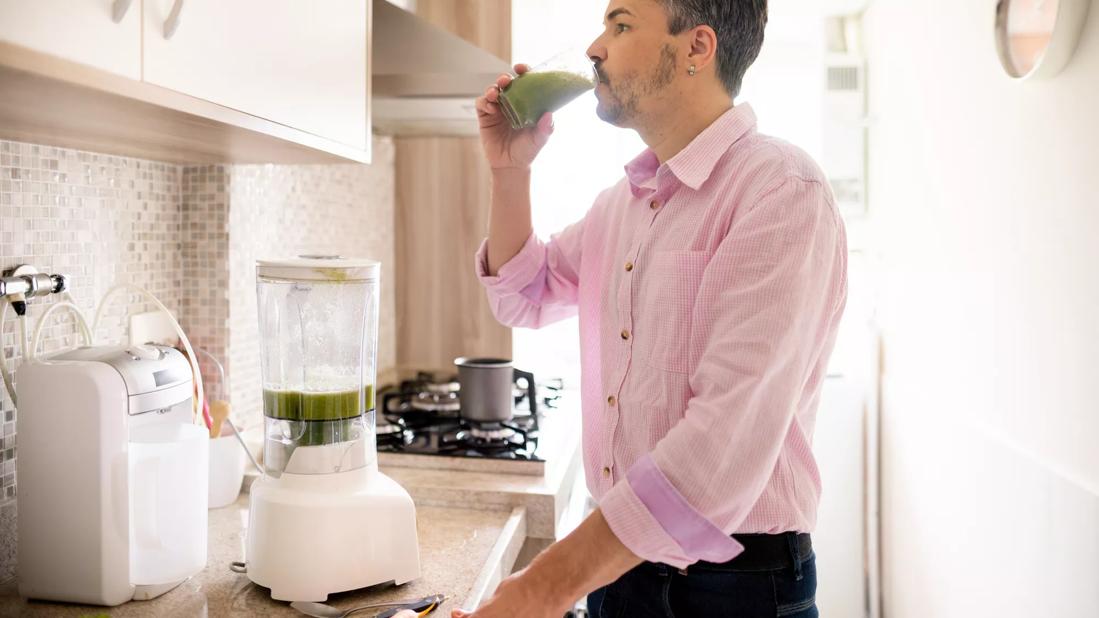
There may come a day when your dentist says you need to have oral surgery. Whether it’s a tooth extraction, dental implant or corrective jaw surgery, you need to modify what you eat while you heal from the procedure.
Advertisement
Cleveland Clinic is a non-profit academic medical center. Advertising on our site helps support our mission. We do not endorse non-Cleveland Clinic products or services. Policy
Following your doctor’s recommendations when it comes to your diet is vital. There’s a good chance you have sutures or stitches — and that means you need to take care not to disturb your incision and give it time to heal.
So, what kinds of food should you be eating? Pro tip: Soft foods will become your new best friend. (And you’re going to have to lay off the chips and cookies for a few days.)
General dentist Nathan Janowicz, DMD, shares what to eat after wisdom teeth removal and other oral surgeries, what to avoid and when you can get back to eating solid foods.
After oral surgery, you want to stick with liquids or soft foods, says Dr. Janowicz. Foods to eat after wisdom teeth removal and other kinds of oral surgery can include, but aren’t limited to:
When it comes to soft foods, you want to look for physically soft food. The overall goal is to reduce the need for chewing, so choose options that are easy to chew and swallow.
Dr. Janowicz says soft foods after oral surgery can also include cooked pasta, rice, mashed potatoes, scrambled eggs and fruits like berries, bananas, watermelon and peaches.
You can also puree, mash or chop foods into more manageable sizes or textures.
Though you’re limited in what you can eat, you want to make sure you’re consuming nutrient-rich foods (so, no, you shouldn’t subside on just ice cream the whole time).
What not to eat is just as important as what to eat. Dr. Janowicz recommends you avoid the following after oral surgery:
Advertisement
You also want to be careful with certain hot foods like coffee, tea and soup that can become too hot. Make sure those foods are lukewarm or room temperature before consuming.
“You should avoid very hot foods post-surgery to avoid disrupting your blood clot,” stresses Dr. Janowicz. “Additionally, you should avoid spicy, acidic foods and anything very hard or crunchy like nuts or crackers that could disrupt your sutures.”
He adds that it’s important to avoid using a straw, too, especially if you’re drinking milkshakes or smoothies.
“The suction from a straw can disrupt your clot and lead to dry socket,” he warns.
And one more thing you should avoid? Alcohol and smoking.
“Alcohol can put a strain on your organs and make it more difficult for your body to heal. It can also interact negatively with common drugs prescribed after treatment like pain medication and antibiotics. You should avoid drinking while on any of these medications,” says Dr. Janowicz.
“Smoking shrinks the blood vessels that carry healing cells to your surgical site and can severely affect your body’s ability to heal. Additionally, smoking can lead to dry socket.”
Advertisement
Are you wondering: When can I eat after wisdom teeth removal?
Your oral surgery may have required sedation options such as nitrous oxide or intravenous (IV) sedation.
“It’s important to avoid eating until the local anesthesia wears off,” advises Dr. Janowicz. “This is to prevent you from chewing or biting on your soft tissues and tongue that you may not be able to feel. After this, you can eat as tolerated, starting with soft, cold or room-temperature foods.”
Living on a diet of mashed potatoes and Jell-O doesn’t sound that thrilling. But it’s important that you don’t rush your return to solid foods.
“The diet after surgery really depends on the individual patient and procedure, but you can advance your diet as tolerated,” says Dr. Janowicz. “Eat soft foods for two to three days, and slowly introduce more solid foods in the days following. Your body will tell you if it’s too much — don’t overdo it.”
Oral surgery isn’t fun, but you can do your best to recover by making sure you follow any aftercare instructions. And before your oral surgery, make sure you ask your dentist any specific questions you have.
Remember: When it comes to things to eat after wisdom teeth removal and other oral surgeries, choosing liquids or soft foods is recommended. And even if you’re on a diet of soft foods after dental work, you want to do your best to follow the recommendations of your healthcare provider.
“The most important thing is to maintain a healthy diet. Your body needs healthy foods that promote healing after oral surgery,” says Dr. Janowicz. “Some good options are berries, veggies, healthy fats, protein from lean meats, fish and eggs, greens and whole grains.”
Advertisement
Learn more about our editorial process.
Advertisement

Non-cancerous ulcers usually heal within a few days or weeks — if it’s sticking around, it’s time to get it checked

From baking soda to lemon juice, you probably have several home remedies in your fridge that can help with this fungal infection
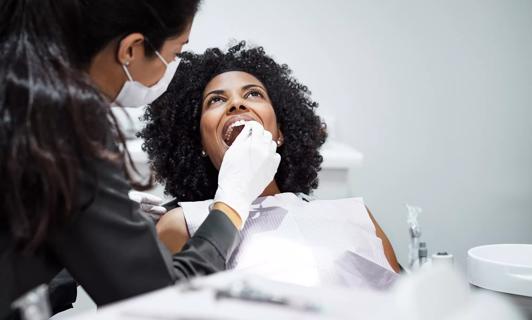
Keep the nail file out of your mouth and leave any tooth shaving up to your dentist
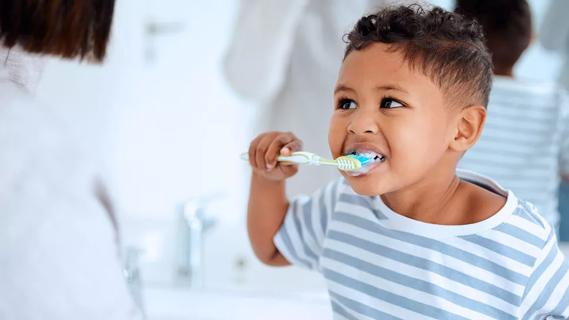
Help and encourage them to brush and floss regularly, limit sugary foods and get routine dental checkups
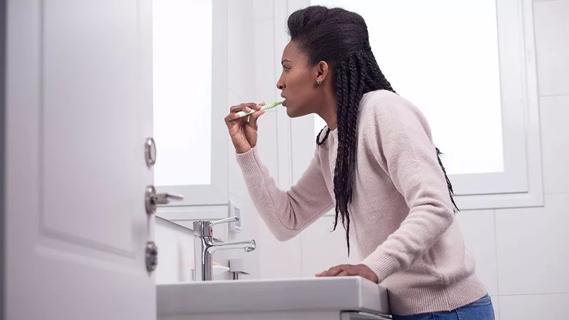
Estrogen and progesterone changes throughout the month — and throughout your life — can make you more prone to dental health concerns

Benefits typically include bi-annual screenings and lower payments on procedures like fillings and crowns
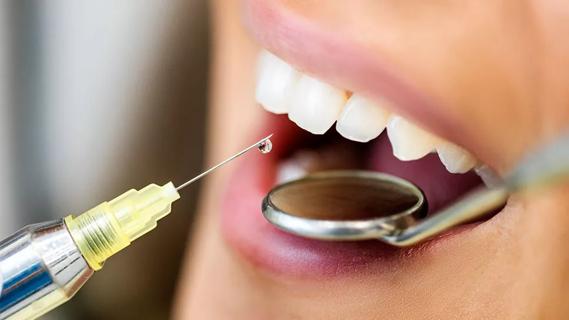
The numbness and tingling should wear off in about two hours
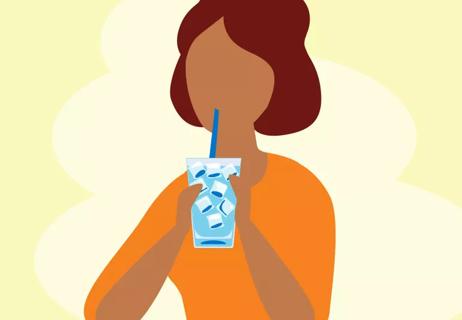
Get quick relief with ice chips, popsicles, milk and saltwater

Focus on your body’s metabolic set point by eating healthy foods, making exercise a part of your routine and reducing stress

PFAS chemicals may make life easier — but they aren’t always so easy on the human body

While there’s little risk in trying this hair care treatment, there isn’t much science to back up the claims